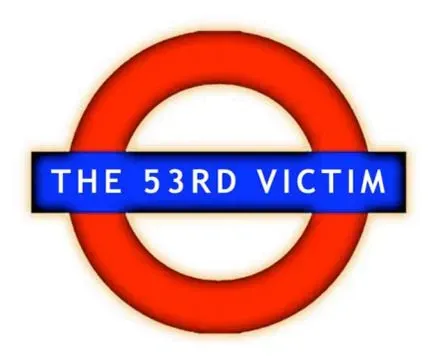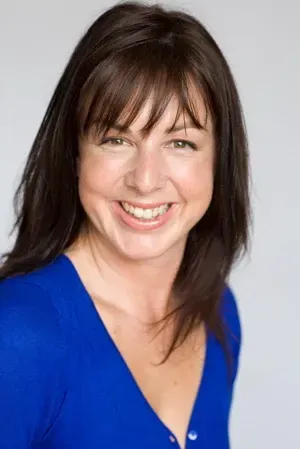The 53rd Victim
Written by

Reviewed by Cathy Aronson
What were you doing when you heard about the 7/7 London bombings in 2005? It’s one of those questions that if most people can answer, you know it was an international event burnt into the psyche of human consciousness.
Reviewed by Cathy Aronson
What were you doing when you heard about the 7/7 London bombings in 2005? It’s one of those questions that if most people can answer, you know it was an international event burnt into the psyche of human consciousness.
I was on the late shift on the NZ Herald news desk, updating the website live as the tragic events unfolded, resulting in 52 deaths.
As the Online World Editor I had become uncomfortably numb to such news, but this time the reality of the headlines hit home as my calls to lil sis in London, on her way to work on the bombed tube line, failed to go through.
As the ‘graveyard shift’ came to life and the newsroom filled with more reporters, I could only think of my sister becoming the ‘London bombing Kiwi angle’ on the morning sandwich board.
The online message board poured out live witness accounts, including ‘lost and found’ messages as the cellphone networks were down, relieving my fears long enough to get on with the job.
As the hours went by and the live pictures came through, my journo shell was cracking and the fantasy of what could have happened to my sister was taking over.
* * *
It’s an interesting occurrence that people seem to attach themselves to momentous events, whether tragedy or triumph, often with a greater importance than reality.
Journalists tend to develop, over time, a fairly refined bullshit detector and cynicism to such claims - including your own.
While I have recollections of the message from a Doctor in London who’d rescued people after a second bus bomb, and the subsequent stories and conversations as her bogus life unravelled until her death (labelled in the UK as the '53rd victim' of the London bombings), it is not my story to tell.
It was close enough to warrant a journey to Whangarei to see the Bogwood Production of The 53rd Victim, which had promising prospects with an award winning script by Pip Hall, daughter of playwright Roger Hall.
Pip Hall was in London on the day of the bombings and became intrigued by the story of the young New Zealander – renamed Rachel.
I purposely didn’t refresh myself on the details, so I could watch the ‘based on a true story’ unfold on stage, and then – typically – ‘google it’ afterwards for the facts. It ended up being eerily close to real life, although Pip Hall says, in an interview with Scene Magazine “At the beginning I stuck to the facts and rearranged them for dramatic purposes, but as I got into it I created more fiction.”
‘It’s what we’ve been waiting for. The Kiwi angle!’ the journalist on stage exclaims in response to a message from London (which turned out Rachel had written herself)...‘I thought you would like to know one of the heroines from the Tavistock Square bus bombings was a Kiwi. She was one of the medics working at the British Medical Association who immediately rushed out to help people.’
* * *
Sarah Boon played the multitude of narcissistic personalities and emotions of Rachel superbly.
From the heights of a confident professional woman, to dealing with the humility of heroism, giving way to the 15-seconds-of-fame and then unravelling as the truth is revealed - the mantra of "‘I’m a good person, I’m a happy person..." portrayed each mental state perfectly and took the audience along every step of the way.
[Spoiler] I’d read a ‘moved me to tears’ review, and although this can verge on hyperbole, my friend and I truly were in tears as the back-story, which offers empathy for Rachel’s actions, was conveyed so convincingly (by Sarah Boon and her 'mother' played by Jan Fisher) that when it turns out to be bogus, my friend at least, felt so betrayed she left the theatre ‘sickened and angry’ and feeling sorry for the mother. [Spoiler ends]
I was more empathetic to Rachel, and left a bit shaken by the reality of how the pressure of mass media attention can be so destructive, especially when already on the verge.
As the story progresses and the journalists turn from ‘friend to foe’ and question her Dr status, Rachel starts to unravel. Standing on the side of the stage staring into the crowd, just like a rock-concert when you think ‘he’s looking at me’, Rachel seemed to be drilling into my soul as she calls the journalist to complain about the ‘unforgiveable’ persecution of the media.
* * *
Given the details, emotions, back stories and time-shift in the play, it was amazing that I did not 'lose the plot’ at any stage - a credit to the playwright, direction and performers.
Rather it felt like a real life drama unfolding and the 20 minute interlude was the only disappointment as we were so drawn into the characters and anxious to hear what happened next.
The ending was a great twist, with no doubt about Rachel's mental state, and left a lot of people sitting in their seats discussing it and re-reading the programme for details.
I was personally left in a bit of an emotional head-spin between empathy, guilt and humility.
As part of my googling afterwards I noticed the last online update that night was at 4am, long past the usual 1am knock-off. I recall I didn’t leave work until I finally heard from my sister, near the end of her three hour walk home. She had left for work early that day, and was fine.

